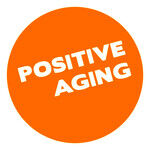A first-ever "National Health Check-Up poll by the Mayo Clinic shows that as we age, the kinds of health problems we talk about with our friends change. Twenty-somethings focus on healthy eating. In your 30s, the topic du decade is your parents' health. In your 40s, it's your kids' health. After age 50, it's all about you and your health problems.
Not surprisingly, there are gender differences, with women typically more proactive about their health. This year, according to the poll, women are more likely than men to eat a healthier diet, schedule an annual wellness visit with their doctor, get more sleep, see a doctor about symptoms they were experiencing, take a nutritional supplement and schedule a milestone screening.
Survey participants were pretty optimistic about the future of medicine, particularly in curing chronic diseases. Substantial numbers predicted diabetes and cancer would be cured in the next 10 years, with Alzheimer's, Parkinson's and ALS being cured within 20 years.
Sleeping Away Diabetes
A study, soon to be published in Diabetes Care, suggests that two nights of more-than-normal sleep (say, the weekend) might counteract the increased risk of type 2 diabetes caused by not getting enough sleep during the work week.
But don't get too excited about hitting the sack for some extra restorative ZZZs. The study used a tiny sample of just 19 healthy, young men on a good diet, which is pretty much not the rest of us.
Body of Knowledge
Newborn babies have kneecaps composed of cartilage, which later converts to bone.
Number Cruncher
A small order of Panera's mac and cheese (220 grams) contains 490 calories, 270 from fat. It has 30 grams of total fat, or 46 percent of the recommended total fat intake for a 2,000-calorie daily diet.
It also contains 65 milligrams of cholesterol (22 percent), 1240 milligrams of sodium (52 percent), 37 grams of total carbohydrates (12 percent), 1 gram of dietary fiber, 7 grams of sugar and 17 grams of protein.
Counts
$4,000,000: Funding, in dollars, provided by the People for the Ethical Treatment of Animals to academic and biotechnology research since 1998. The money goes primarily to work on alternatives to using animals in science and medicine research.
Source: STAT
Phobia of the Week
Ostraconophobia: fear of shellfish
Never Say Diet
The Major League Eating record for eating a fruit basket is 3 minutes, 52 seconds, held by Pete Davekos. It's not clear exactly what was in the basket (assuming Davekos didn't literally eat a fruit basket), but at least one fruit wasn't included: a durian, reputed to be the world's smelliest fruit, capable of inducing retching with a single sniff.
Hypochondriac's Guide
Sensory desynchronization is a brain disorder in which the patient hears voices before people speak. It may involve the patient even hearing his own voice before he feels his mouth move. Researchers believe the problem is caused by a failure of the brain to compensate for the different speeds at which light (vision) and sound (hearing) move. The condition is very rare.
Observation
"I get my exercise acting as pallbearer to my friends who exercise."
— Former U.S. Senator Chauncey Depew (1834-1928)
Medical History
This week in 1947, Stanford University scientists reported isolating the poliovirus after three years of work. Laboratory tests showed it to be at least 80 percent pure, and that it could lead to producing an impurity-free vaccine for use against infantile paralysis. The virus was obtained by purification from ground-up brain and spinal cord of rats infected with the poliovirus.
Self-Exam
Q: What is the most common vitamin deficiency in the U.S.?
A: Vitamin B6 followed by iron (in women age 12-49), vitamin D, iron (1-5 years old), vitamin C (6 years and older) and vitamin B12, according to the Centers for Disease Control. Generally speaking, however, the CDC found less than 10 percent of the U.S. population had nutrition deficiencies for selected indicators.
Vitamin B6 is found in cereal grains, legumes, vegetables, milk, cheese, eggs, fish and meat.
Medical Myths
It is not dangerous to wake up a sleepwalker, but it might not be easy or effective, resulting more often in the sleepwalker becoming disoriented. Experts suggest the best course is gently easing the sleepwalker back to bed. If that doesn't work, watch them closely to assure their safety and try again after some time has passed.
Last Words
"Sister, you're trying to keep me alive as an old curiosity, but I'm done. I'm finished. I'm going to die."
— Irish playwright George Bernard Shaw (1856-1950) to his nurse
To find out more about Scott LaFee and read features by otherCreators Syndicate writers and cartoonists, visit the Creators Syndicate website at www.creators.com.






View Comments